Does the smell of a roasting turkey make your mouth water? It certainly does your pet’s. Holiday celebrations are a time we often indulge in our favorite rich, savory foods that your pets may also find irresistible, but which can be hazardous, and sometimes life-threatening to them. Read on to learn what’s safe and what isn’t when you celebrate with your furry pals.
Foods safe for pets
- Cooked green beans — Some dogs love these, and they’re low calorie—if they’re not dripping with butter. Feed your dog these special treats in their dog bowl, so they don’t beg at the table.
- Small amounts of canned pumpkin — Unsweetened pumpkin can be a healthy snack for dogs and cats. Spoon the pumpkin right from the can, and smear some along the edge of your pet’s bowl for them to lick. Cats sometimes enjoy pureed pumpkin, which can help with hairballs. However, pumpkin contains fiber, and too much can cause diarrhea or constipation, so if your pet hasn’t eaten pumpkin before, don’t give more than a teaspoonful.
- Corn — Corn is a grain, and since dogs are omnivores, a small amount of corn is safe, so long as it’s unsalted and unbuttered. Never offer your dog corn on the cob.
- Cooked egg — Both dogs and cats usually love eggs, but they are high in calories, so don’t give too much—a quarter, or no more than a half, of a hard boiled or scrambled egg, without butter, is plenty for a small dog or a cat. Ensure the egg isn’t too hot before serving, because some pets will be so excited to get an egg treat, they won’t wait for it to cool and burn their mouth.
Foods unsafe for pets
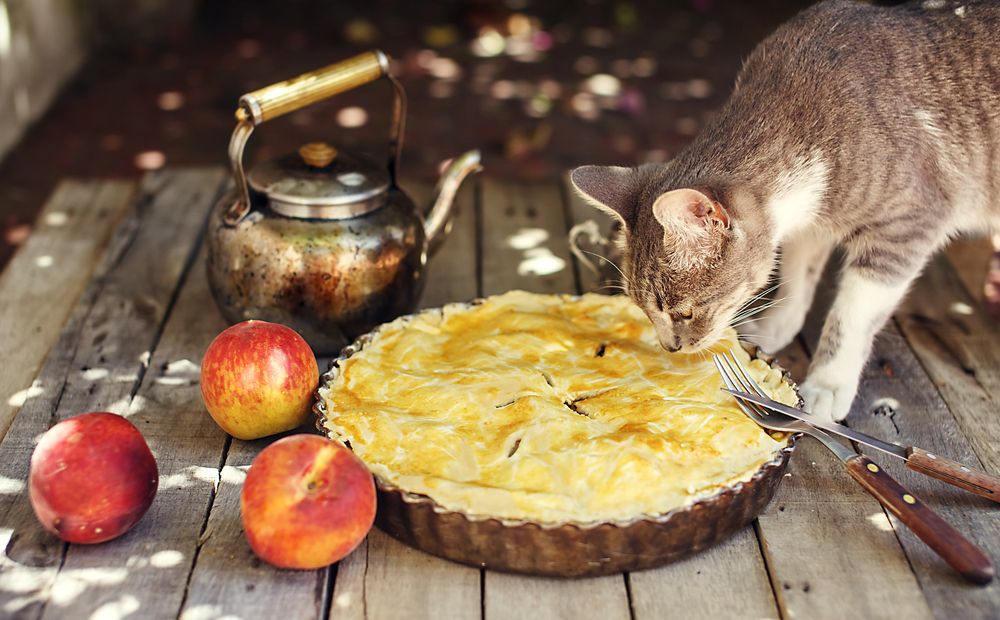
- Chocolate — Any type of chocolate can result in toxicity if your pet eats it. Signs range from vomiting and diarrhea, to seizures and sometimes death, and severity depends on the type of chocolate eaten—dark chocolate is more toxic than milk chocolate—and the amount. Keep all baking supplies, candies, and chocolate desserts away from pets. If your pet does eat chocolate, contact Livingston Veterinary Hospital as soon as possible.
- Pumpkin pie — High in sugar and calories, pumpkin pie’s richness can lead to digestive upsets. A pie that contains the artificial sweetener xylitol, which can cause blood sugar levels to drop precipitously, can lead to seizures, liver failure, and death.
- Corn cobs — Corn cobs are one of the most common causes of intestinal blockage in dogs, causing severe pain, and requiring emergency surgery. If your dog likes to gnaw, stick to veterinary-approved dog snacks and toys.
- Gravy — Fat-rich gravy can lead to pancreatitis in dogs and cats. Certain breeds, such as schnauzers, and overweight pets are more likely to develop pancreatitis, but any animal who overindulges in fatty or greasy items is at risk. Pancreatitis, whose signs include abdominal pain, vomiting and diarrhea, and sometimes fever, usually requires aggressive treatment. Because gravy is particularly tempting to pets, ensure leftovers are put in an animal-proof trash container, and keep gravy boats and pots and pans out of reach.
- Turkey bones — Many pet owners are aware that turkey bones are dangerous for pets. The bones can cause gastrointestinal obstructions, and can break easily when chewed, resulting in sharp edges that can injure mouths, stomachs, and intestines. Nevertheless, pet owners can be surprised how crafty their pet’s efforts can be to get these bones—our veterinary team has heard stories of pets jumping on the table to grab a whole turkey carcass, ripping open trash bags, and digging bones out of a compost bin. Unfortunately, these pets require emergency veterinary care. Take extra precautions when discarding turkey bones and other leftovers.
Our Livingston Veterinary Hospital team is happy to discuss food safety tips and tricks with you, because keeping your four-legged family members healthy is our priority. Contact us if you have any concerns about trouble your pet may find over the holidays.
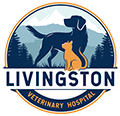

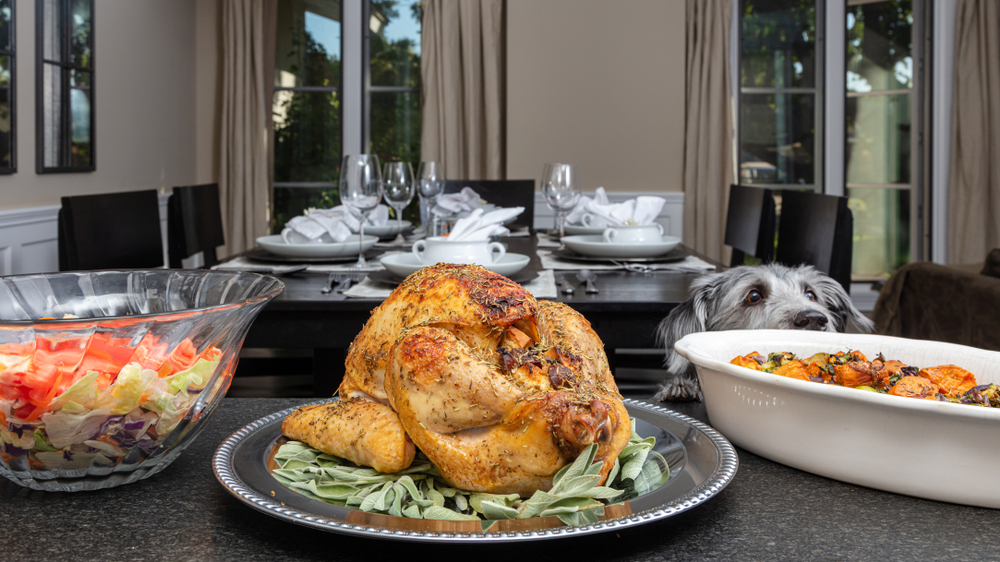
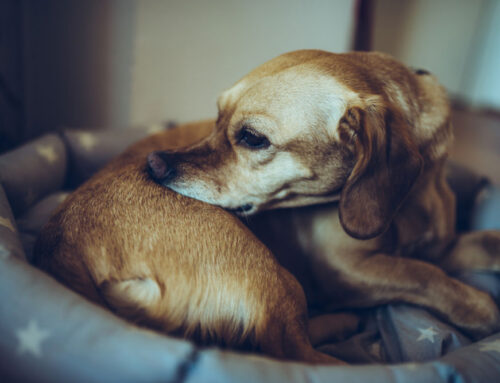
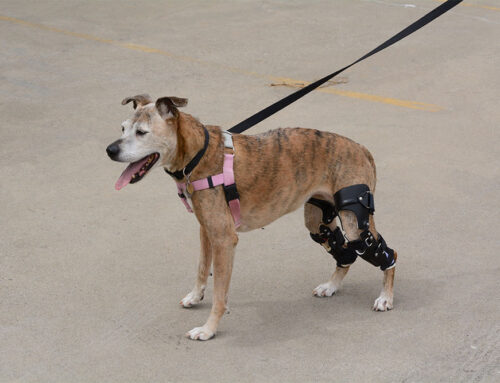


Leave A Comment